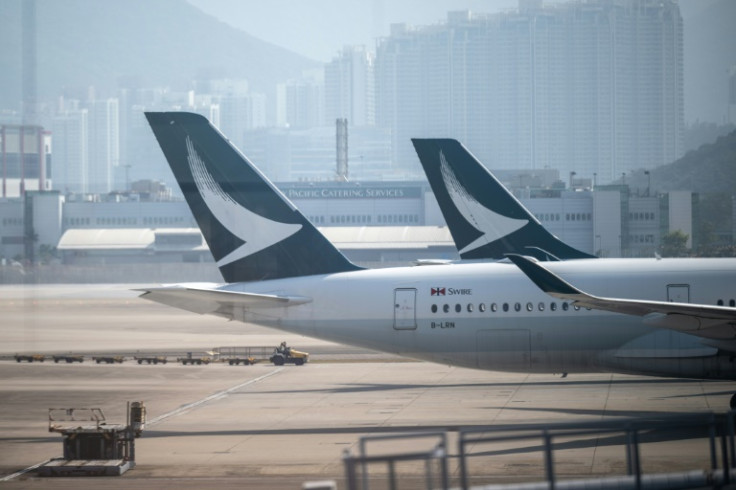Major Airlines Earn Staggering $33.3b in 2023 For Baggage Fees Alone
With more passengers opting for checked baggage and additional services, airlines are capitalizing on the renewed demand for ancillary offerings.

Major carriers, including Delta, United, and American Airlines, amassed a remarkable £26 Million ($33.3 billion) from baggage fees alone in the previous year, marking a substantial 15 per cent increase from the £23 Million ($29 billion) recorded in 2022.
This staggering sum encompasses fees related to larger carry-on bags, standard checked baggage, and penalties for overweight or extra-large checked bags, constituting 4.1 per cent of the total global airline revenue for the year.
The findings, focusing on the top 20 non-low-cost carriers, emerge amidst controversy surrounding American Airlines, which recently faced backlash for increasing the cost of checked bags—the first such hike in nearly six years.
The last time the figures breached the £23.7 Million ($30 billion mark) was in 2019, with airlines generating £26 Million ($32.9 billion) in baggage revenue.
However, the onset of the pandemic in 2020 caused a significant dip, slashing the numbers in half to $16.9 billion as global borders remained shuttered.
As the aviation industry navigates the turbulent aftermath of the COVID-19 pandemic, major airlines have witnessed a remarkable rebound in their financial fortunes, with baggage fees emerging as an unexpected revenue powerhouse.
The figures highlight a remarkable financial turnaround for major airlines that grappled with unprecedented challenges during the height of the global health crisis.
In stark contrast, the year 2023 not only signals a resurgence in air travel but also underscores the industry's ability to leverage ancillary revenue streams, particularly from baggage fees.
Aileen McCormack, representing CarTrawler, a car rental service that collaborated with an airline consulting firm, highlighted the evolving landscape of airline revenue.
She emphasised: "Baggage fees, once dominant, now share the stage with assigned seating revenue, reflecting changing consumer behaviours."
The inception of baggage fees traces back to the oil shock of 2007 and 2008 when airlines sought ways to counter the surge in fuel prices.
Within months, US carriers transitioned from including two checked bags with every fare to charging for the first bag.
In the current scenario, travellers worldwide have grown accustomed to paying for both their seats and their suitcases when flying with major carriers.
Notably, exceptions exist for passengers flying on major airlines in Asia and Africa, where checked baggage is still included in all fares.
To stay competitive with low-cost carriers like Southwest, JetBlue, and Allegiant, network carriers such as American and United introduced basic economy fares. This strategic move aimed to cater to evolving consumer preferences and maintain a competitive edge in the market.
The surge in baggage fee earnings is attributed to several factors, including increased travel confidence, a rebound in tourism, and a surge in business travel as global economies gradually recover.
With more passengers opting for checked baggage and additional services, airlines are capitalising on the renewed demand for ancillary offerings.
While the financial rebound is encouraging for the industry, it also raises questions about the sustainability of such revenue models.
Passenger advocacy groups and consumer rights organisations have long criticised the ancillary fee structure, arguing that it places an additional burden on travellers already grappling with the rising costs of air travel.
In response to the windfall from baggage fees, some industry observers call for transparency in fee structures and increased communication with passengers regarding the breakdown of costs.
They emphasise the importance of ensuring that passengers are fully aware of the fees associated with their travel, allowing for informed decision-making and reducing the likelihood of unexpected expenses.
As major airlines bask in the financial success of 2023, the focus now turns to strike a balance between capitalising on ancillary revenue streams and addressing passenger concerns.
The industry's ability to foster a positive travel experience while maximising revenue will play a crucial role in sustaining the current momentum and rebuilding passenger trust.
While the financial rebound is a positive sign for the aviation sector, it also underscores the need for a nuanced approach to ancillary revenue structures, ensuring transparency, and addressing passenger concerns.
© Copyright IBTimes 2025. All rights reserved.






















